Valentyn Nyzkovolosov: Kyiv, Ukraine – “UYCA”
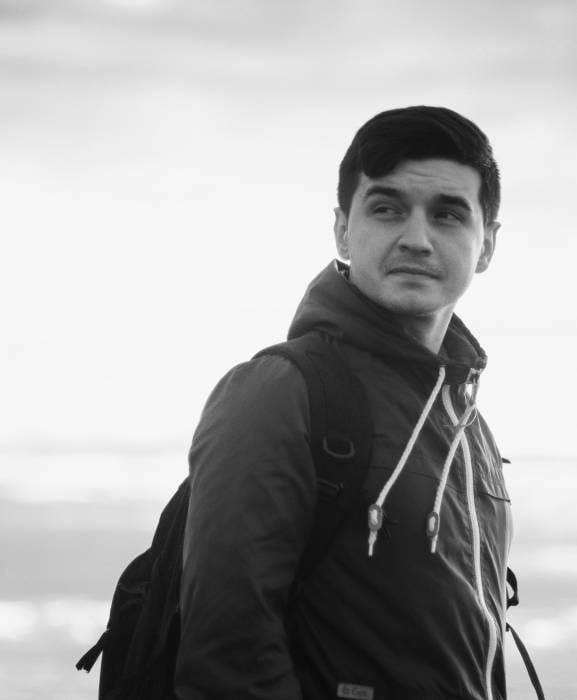
Photo: Helen Angelova
Most likely, at school each of us heard about climate change, the greenhouse effect, or a hole in the ozone layer, but this was very superficial. I learned about the causes, consequences and ways to solve climate change problems in more detail at an energizer camp in 2014 and I joined the NGO “UMKA” (the Ukrainian youth climate association) – which I consider to be the start of my involvement in climate movement. We work towards creating a grassroots climate movement in Ukraine, starting with the issues of air quality in cities. We would like to empower young people to get involved in decision-making that influences them.
Naturally, it is difficult to deal with climate issues, when the results of your work could be seen as far as 20 to 50 years from now, moreover, it is not easy to estimate your own contribution. But at the same time I feel inspired by such challenges.
Maryna Tsyhryk: Poltava, Ukraine – “Ekoltava”
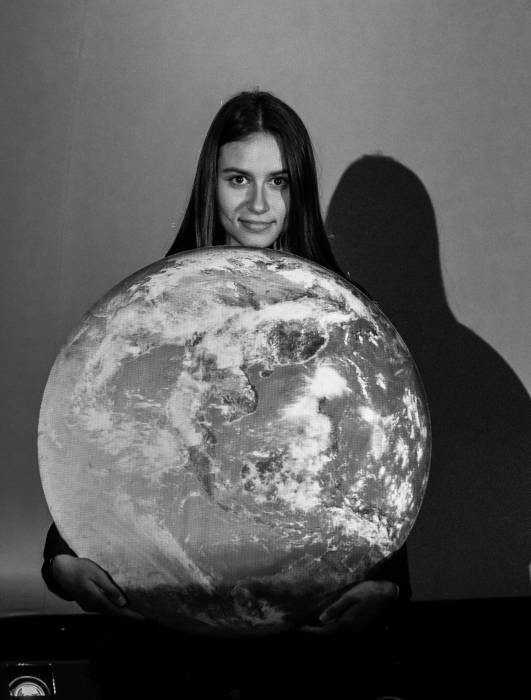
Photo: Julia Pashkovska
Nearly 12 years ago, when I entered high school and biology class for the first time, I read a very important phrase, which I remember even now. This is the sentence: “We do not inherit the Earth from our ancestors; we borrow it from our children.” First, I thought that it was just a messed-up word order, and only many years later did I come to fully understand it. The scale of the climate change problem is difficult to fully comprehend and forecast. Because it is a question of people’s survival (access to food, drinking water, living territories, comfort). This problem could impact many generations.
As the Facebook status says, “feeling alarmed”, but jokes aside, I feel constantly alarmed, because there is less and less time to solve the problem, while the climate change consequences can become more and more hazardous. This is what motivates me to be in the climate movement and to work in the environmental organization, Ecoltava. Currently we are working in the spheres of climate change adaptation, renewable energy sources and proper waste treatment.
I believe in climate justice which is to come ultimately, and also that we are able to give the future generations an opportunity to live, and not to survive.
Artur Kokarevich: Khmelnytskyi, Ukraine – Khmelnitsky Energy Cluster
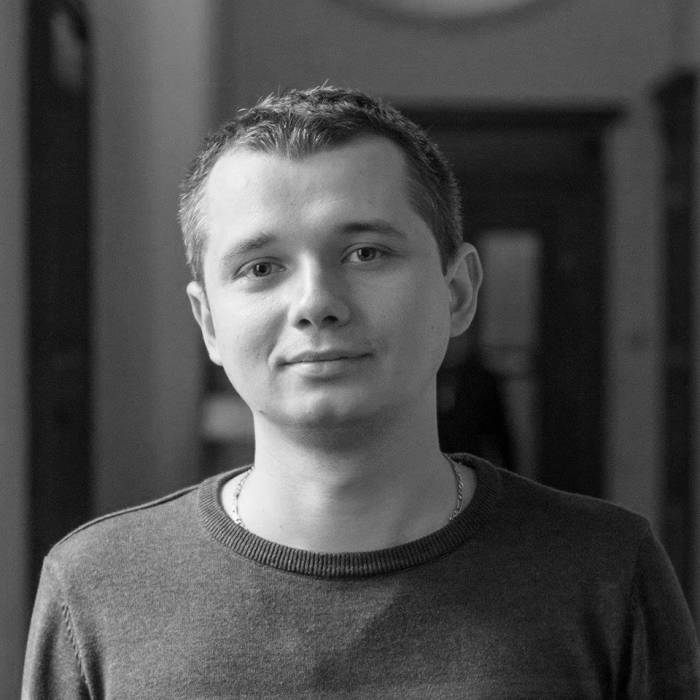
Photo: Katerina Shulyak
I do not recall the exact day when I first heard or started thinking about climate change problems. But I clearly remember the year when I started my public activism. It was the troublesome 2014. Probably that is when I first got interested in the climate change problems. This feeling that had been sown that year that you can change yourself, your environment, your city and even the country, it was truly inspiring!
Gradually, such topics as combating climate change and related issues became a priority for me and urged me to start a profile organization. That is why, in the summer of 2018, together with my colleagues we registered “Khmelnytskyi energy cluster”. The cluster started to be a real regional platform united under a common goal: reach 100% renewable energy sources in Khmelnytskyi regional energy balance through the involvement and cooperation of all stakeholders in a cluster format. Instantly, we started having projects and ideas that united different participants of the platform. For instance, together with 350.org we are now working on the initiative for cities to make a transition to 100% renewable energy.
The climate is changing rapidly, that is why now, like never before, is the time to act. This could be done more easily and efficiently through cooperation! I really want to save our planet for future generations and relieve them of this global issue, and most importantly of the possible consequences.
Olga Fursik: Kyiv, Ukraine – “UYCA”
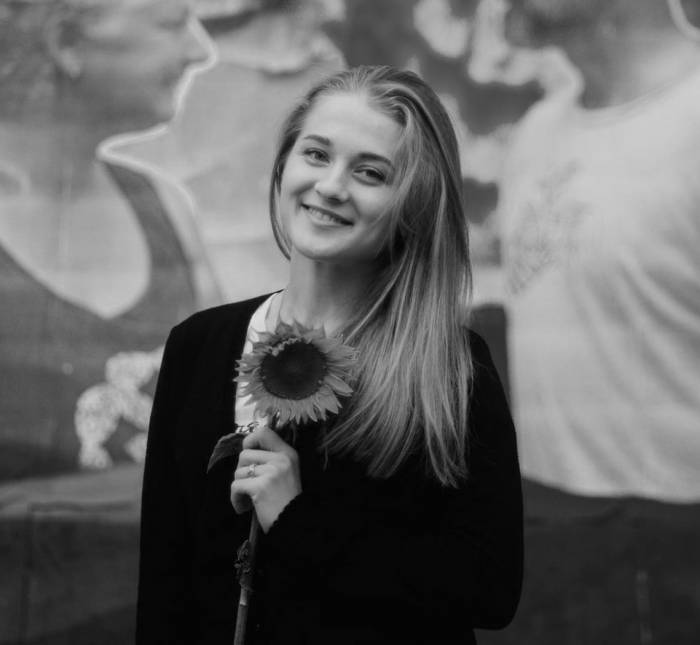
Photo: Helen Angelova
I first became aware of climate change when I was writing a school essay in English, back then I had a lot of difficulty finding some information, so I wrote about holes in the ozone layer. This subject remained a question mark in my head, because I felt that I did not know so much about it. In 2012, I attended a Sustainable Development summit. And there I happened to find the first puzzle piece for my dream mission. I found the second one a few months afterwards at the Power Shift forum, which was about the development of climate change agents in communities. That is when I joined the climate movement. Later in 2015, I took part in my first climate action. It was the Ukrainian Climate March on the eve of the UNFCCC conference in Paris.
Today I represent the NGO, “Ukrainian Youth Climate Association”. Currently we are working on the air quality monitoring. At the same time, we are planning to develop our traditional projects on the development and support of the climate movement.
This year has seen numerous unprecedented events that demonstrate Ukraine’s huge potential in the reduction of emissions and transition to 100% renewable energy. So, I hope that during the COP24 discussions, they are going to find their climate dream, just like I did once, and that they turn it into a goal, which we will definitely achieve through our consolidated efforts.
Olesya Kramarenko: Zaporizhia, Ukraine – “Dzyga”
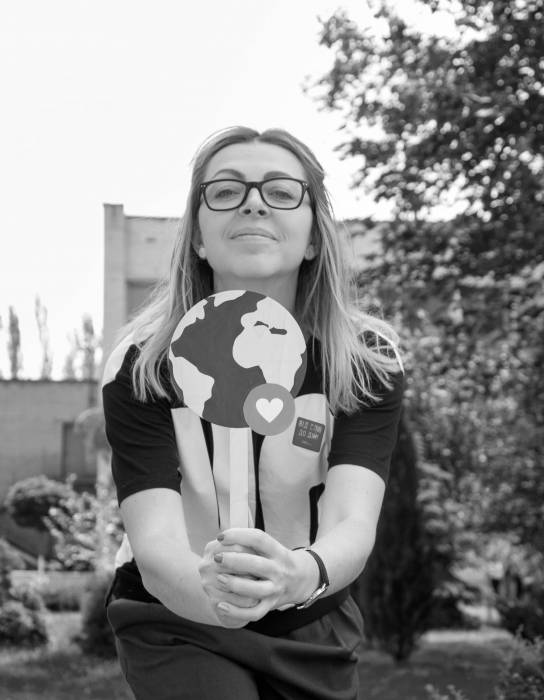
Photo: Olga Semylet
I am a journalist, an environmental activist and a mother of a special needs girl, who was born with a heart defect. I was born in a miner’s family in the very heart of industrial Ukraine. I am still proud of my father’s and my grandfather’s hardworking life. But I also remember my mother’s tears after reports of landslides, and my father was late from his shift, my grandfather coughing, coughing and then going, not seeing his grandchildren, I remember how easily living people were becoming just names in the lists for remuneration to the families of the bereaved. Back then I understood that black gold is obtained by the price of life and death.
My environmental activity started in March 2010, when I learned of the terrible diagnosis of my yet unborn daughter. A complicated cardiac defect with possible concomitant syndromes – DiGeorge syndrome and Down syndrome. A long path of hysterical outbursts, medical check-ups and 240 hours at the emergency room door was ahead of me.
From the doctor’s words, among the reasons for the diagnosis was a “bad environment.” And this was the starting point. I found like-minded people among mothers in Zaporizhia, we united into an initiative group and started actively looking for a way out of the environmental abyss. Direct actions, round tables, public dialogues with polluting enterprises, cooperation with council members, search for solutions. I registered my non-governmental organization “Dzyga” (Spinning Top) and started looking for like-minded people and partners. The key event was meeting climate activists from 350.org in 2017. This was a powerful push in the environmental movement, this inspired me with new energy and new ideas.
Eight years have passed since that cold day. Only one thing has not changed – my fundamental determination and my clear goal. I know that the health and the life of children, born in Ukrainian cities and towns must not depend of the financial plans of polluters, on coal and metal mining, on the level of air pollution and industrial emissions.
Maria Kolesnikova: Bishkek, Kyrgyzstan – MoveGreen
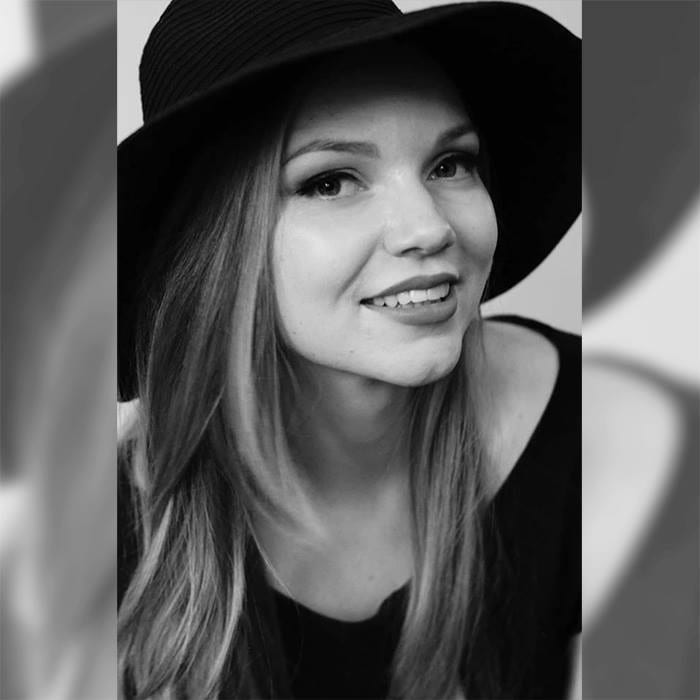
Photo: Polly Jankov
As an adult already established in a profession, it never crossed my mind that I would become an eco-activist, but it was all down to one fateful acquaintance. I met an Australian girl called Katy who was living in Bishkek and had set up an environmental youth group with some friends. One day, we went to the market together. Every stallholder tried to put what she’d bought in a plastic bag – from a bunch of parsley to a carton of kefir. She resolutely told them all: “No need, thank you, I have my own bag.” I spent a long time thinking about what she’d done, without realising at first where it would lead me.
It lead me to working as a volunteer initially, then as the head of the environmental organisation “MoveGreen”. Gradually, I seem to have become completely preoccupied with environmental training activities for young people, working with people to adapt to the effects of climate change in remote regions of the country, and also with monitoring the air quality in Bishkek, of course.
I am finding out more and more about the republic’s vulnerability to climate change thanks to my membership in the Climate Network of Kyrgyzstan. We are one of the 13 countries that has not yet ratified the Paris Agreement. Few in Kyrgyzstan know about the talks. The public does not even know what the country’s official position is at the talks or why we need to join a global movement to reduce the Earth’s temperature.
In ten years, the temperature in Bishkek has risen by 0.35 degrees. There is a layer of smog over the city and we are living and breathing from cyclone to cyclone. I do not want to accept this situation, however, which is why we uncovered data on air pollution in Bishkek and made this data available to the city’s residents.
Nugzar Kokhreidze: Kutaisi, Georgia – RICGOG
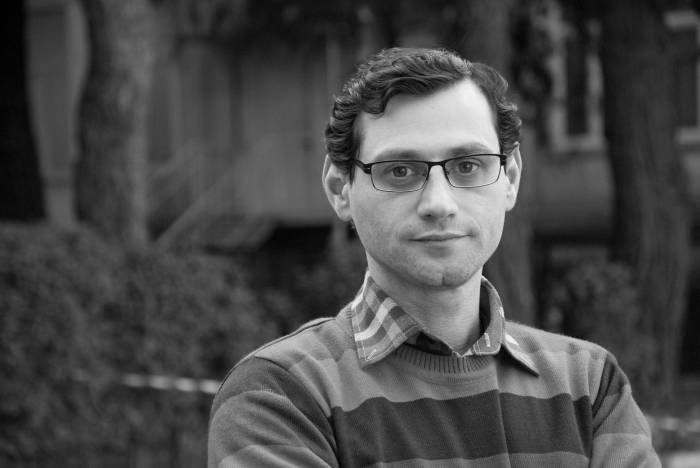
Photo: Julia Oreshina
It all began ten years ago, in 2009. A friend of mine said she’d met some “cool” guys in Poland and asked if I’d go to Berlin. It was only later that I realised it was when the whole world was preparing for the important COP in Stockholm. I arrived in Berlin and met the 350 team from the EECCA region. We then went to a house where the international 350 team was preparing for the march in Berlin.
I felt roused, motivated, and inspired by this important cause and the enthusiasm with which the 350 team was organising “Moving Planet”, the first global action day. When I got back to Georgia, I organised an action that took place in five cities around the country and involved more than 200 people. This was followed by other global actions that raised public awareness of the importance of climate change.
Volunteers helped massively with the organisation of all these actions, along with the Academic and Intellectual Club “Dialogue of Generations” (RICDOG), a local organisation I set up. One of the greatest achievements of 350.org Georgia and RICDOG is the city of Kutaisi’s decision to switch to 100% renewable energy by 2050. The initial feelings of excitement have already worn off, however, and a lot of work is now needed to help the city realise this goal. Kutaisi will be helped by the 350.org team for Eastern Europe, Central Asia and the Caucasus. The transition to 100% renewal energy is a difficult process, but we are inspired by the end goal, which will help the city live a new, greener life.
Join these youth leaders by starting your own campaign in your community here.